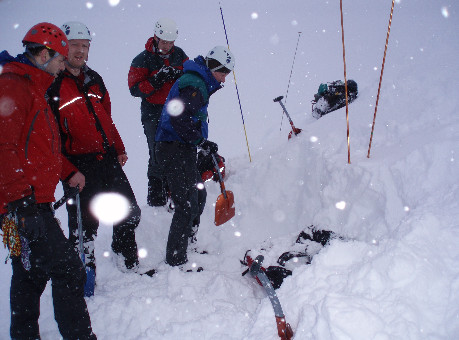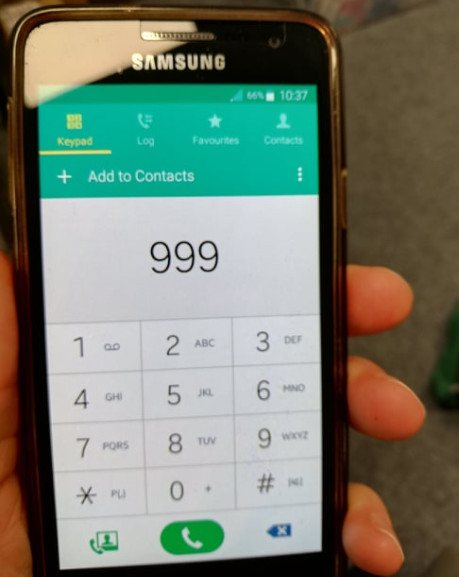
Mountain rescuers at an avalanche site on Buachaille Etive Mor
We are fortunate to have free support in the event of an emergency, but it is our responsibility not call teams out unnecessarily.
This means being committed to self-reliance from the outset. The mountain rescue service should never be viewed as a ‘free ticket off the hill’. Before calling 999 it should be very clear that you are unable to help yourself and that outside help is necessary. Unnecessary calls are costly for the teams and could divert resources away from a serious emergency.
If you require assistance on the hill call 999 or 112 and ask for Police and Mountain Rescue.

Mobile phone reception in the Highlands can often be intermittent or non-existent. If you are involved in an incident on the hill and need to call assistance but cannot make voice calls, there may be enough signal to send a text message. You can contact the 999 emergency services using a text from your mobile only if you have already registered with the emergency SMS text service.
How to register:
Text the word 'register' to 999. You will get a reply, and should then follow the instructions you are sent. This will take about two minutes of your time and could save your life.
Mountaineering Scotland has worked together with Scottish Mountain Rescue to provide this simple advice for how manage in the event of an incident:
If all other forms of communication fail, the internationally recognised emergency signals are six blasts on the whistle or six torch flashes repeated every minute.